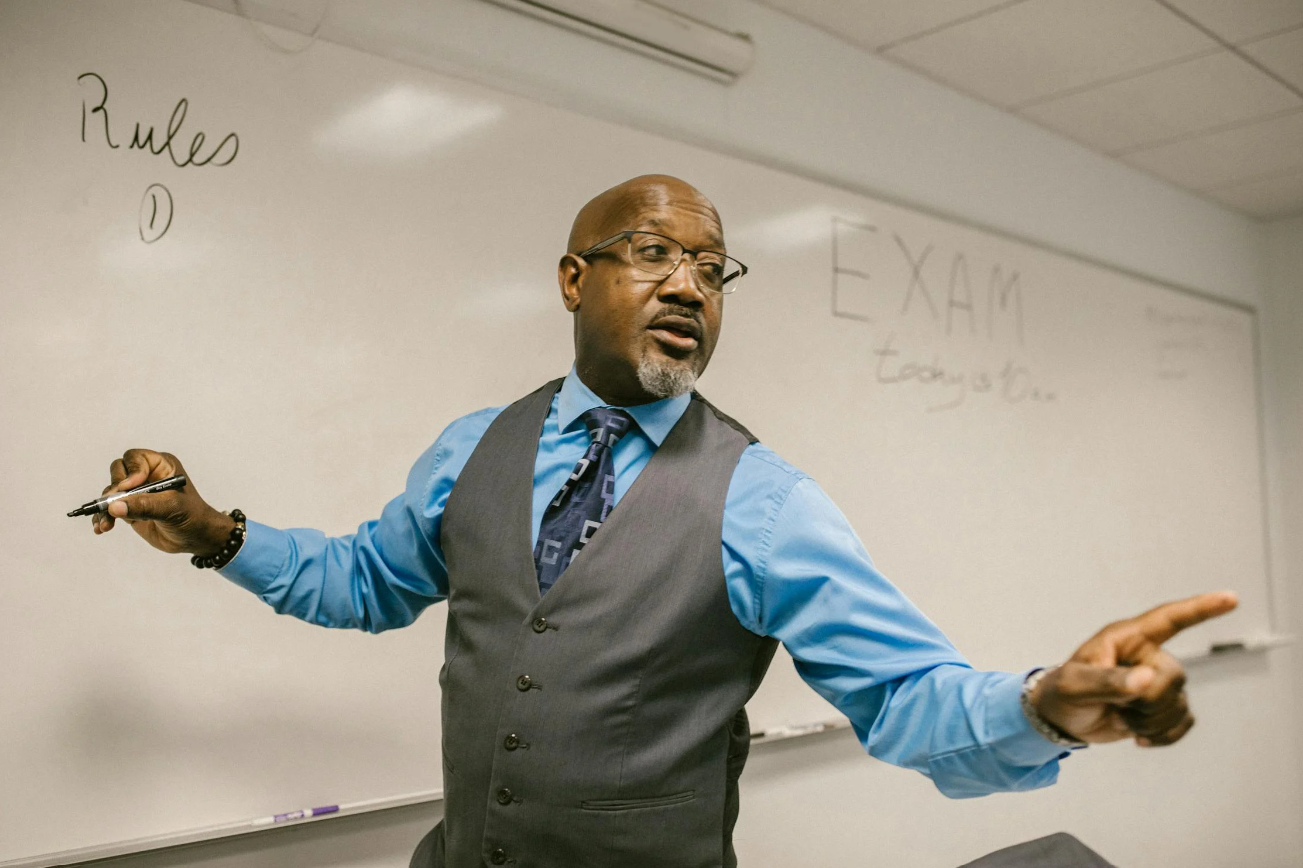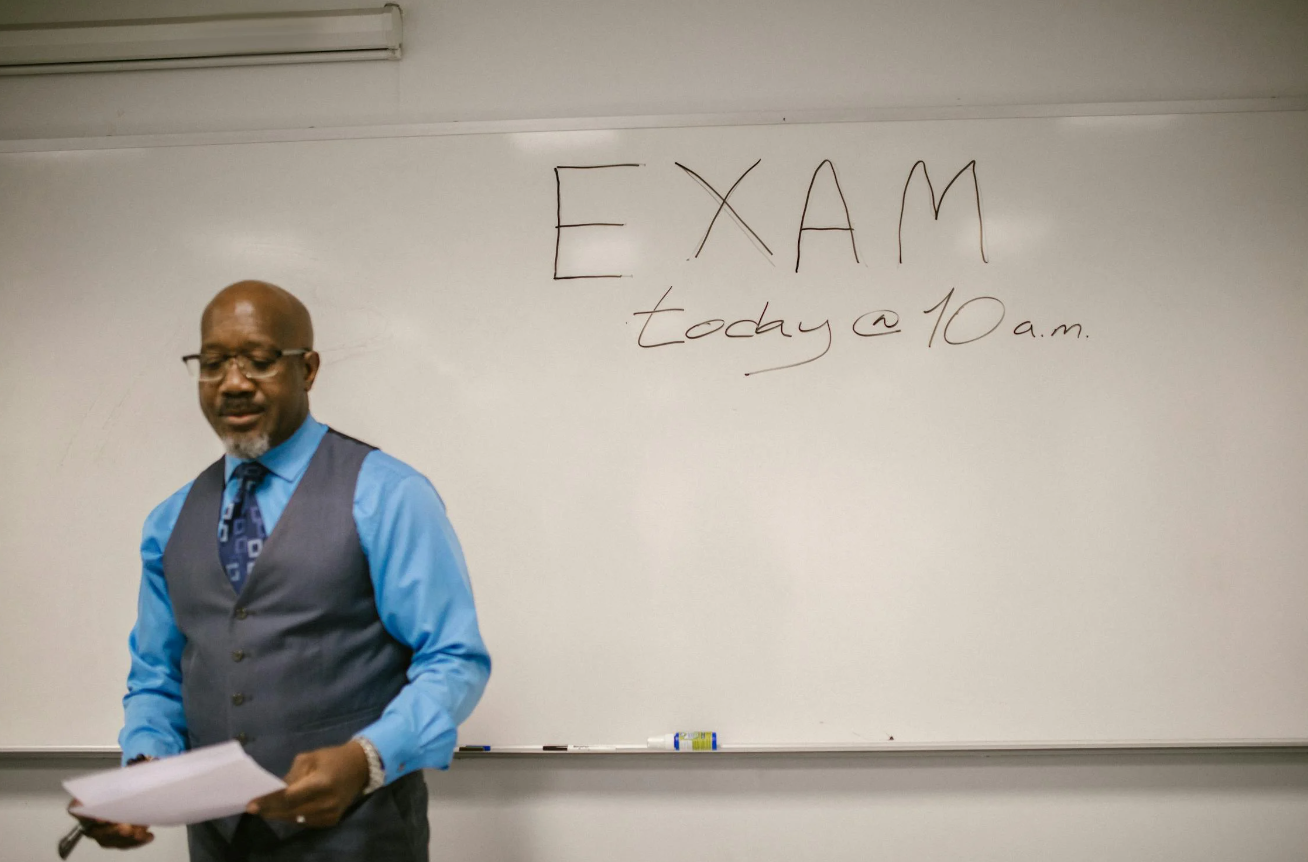
Tanzania, located in East Africa, has a well-established education system with a range of colleges and universities. The government of Tanzania has invested heavily in the education sector, and the country has a high literacy rate. The government has established several teaching colleges to train teachers for primary and secondary schools. These colleges are registered by the National Council for Technical Education (NACTE) and offer certificate and diploma courses in education.
For those interested in pursuing a career in teaching, choosing the right college is crucial. With so many options available, it can be challenging to select the best one. Fortunately, there are several government teaching colleges in Tanzania that are highly regarded for their quality education and training programs. These colleges are equipped with modern facilities and experienced faculty members who provide students with the necessary skills and knowledge to excel in their teaching careers.
In this article, we will discuss the best government teaching colleges in Tanzania that are registered by NACTE. We will provide a comprehensive list of these colleges and highlight the unique features of each one. Whether you are a recent high school graduate or a working professional looking to switch to a career in teaching, this article will help you make an informed decision about which college to attend.
Overview of Government Teaching Colleges in Tanzania
Tanzania has a total of 36 Government Teachers Colleges, which are institutions that provide training for primary and secondary school teachers. These colleges are under the jurisdiction of the Ministry of Education, Science, and Technology, and are regulated by the National Council for Technical Education (NACTE).
The Government Teachers Colleges in Tanzania offer a range of programs that prepare students to become teachers. These programs include Certificate in Education (CEd), Diploma in Education (DEd), and Advanced Diploma in Education (ADEd). The CEd program is a one-year program that prepares students to teach in primary schools, while the DEd program is a two-year program that prepares students to teach in secondary schools. The ADEd program is a two-year program that is designed for teachers who want to specialize in a particular subject.
The curriculum of the Government Teachers Colleges in Tanzania is focused on equipping students with the necessary skills and knowledge to become effective teachers. The curriculum includes courses in subjects such as pedagogy, psychology, educational technology, and subject-specific content. In addition, students are required to complete a teaching practice component, which involves teaching in a real classroom setting under the supervision of experienced teachers.
Overall, the Government Teachers Colleges in Tanzania play a crucial role in the education system by producing well-trained teachers who are equipped to provide quality education to students.
Criteria for Ranking the Best Colleges
When ranking the best government teaching colleges in Tanzania, several factors are taken into consideration. These factors include:
- Academic Quality: This is the most important factor when ranking colleges. Academic quality is determined by the quality of teaching, research, and learning facilities available in the college. Colleges with highly qualified lecturers, modern learning facilities, and quality research facilities are ranked higher.
- Graduate Employability: The employability of graduates from a college is an important factor when ranking colleges. Colleges that produce graduates who are easily employable in the job market are ranked higher.
- Student to Faculty Ratio: The student to faculty ratio is an important factor when ranking colleges. Colleges with a low student to faculty ratio are ranked higher because they provide a more personalized learning experience.
- Research Output: The research output of a college is an important factor when ranking colleges. Colleges that produce quality research are ranked higher.
- Infrastructure: The infrastructure of a college is an important factor when ranking colleges. Colleges with modern infrastructure are ranked higher because they provide a conducive learning environment.
- Accreditation: Accreditation is an important factor when ranking colleges. Colleges that are accredited by recognized bodies are ranked higher because they meet the required standards.
- Student Satisfaction: The satisfaction of students is an important factor when ranking colleges. Colleges that have a high level of student satisfaction are ranked higher because they provide a good learning experience.
Top Government Teaching Colleges in Tanzania
Tanzania has a number of government teaching colleges that offer quality education to students pursuing teaching courses. Here are some of the top government teaching colleges in Tanzania:
University of Dar es Salaam School of Education
The University of Dar es Salaam School of Education is one of the top government teaching colleges in Tanzania. It offers a variety of courses in education, including Early Childhood Education, Special Needs Education, and Curriculum Development and Evaluation. The school is known for its quality education and experienced lecturers who are committed to providing students with the best learning experience.
Mkwawa University College of Education
Mkwawa University College of Education is another top government teaching college in Tanzania. It is located in Iringa and offers a range of courses in education, including Science Education, Mathematics Education, and Geography Education. The college is known for its well-equipped laboratories and experienced lecturers who are committed to providing quality education to students.
Dar es Salaam University College of Education
Dar es Salaam University College of Education is a constituent college of the University of Dar es Salaam and one of the top government teaching colleges in Tanzania. It offers a range of courses in education, including Early Childhood Education, Special Needs Education, and Educational Psychology. The college is known for its experienced lecturers and modern facilities that provide students with the best learning experience.
Kasulu Teachers College
Kasulu Teachers College is a government teaching college located in Kasulu, Kigoma Region. It offers a range of courses in education, including Primary Education, Secondary Education, and Early Childhood Education. The college is known for its experienced lecturers and well-equipped facilities that provide students with a conducive learning environment.
Morogoro Teachers College
Morogoro Teachers College is a government teaching college located in Morogoro. It offers a range of courses in education, including Primary Education, Secondary Education, and Early Childhood Education. The college is known for its experienced lecturers and modern facilities that provide students with a quality learning experience.

Teaching Colleges
Admission Requirements and Process
To be admitted to a government teaching college in Tanzania, applicants must meet certain requirements and follow a specific process. The Tanzania Commission for Universities (TCU) has prepared an Undergraduate Admission Guidebook for the 2021/2022 academic year to guide both TCU and Higher Education Institutions (HEIs) on admission procedures and ensure the quality of students admitted into HEIs.
Admission Requirements
The admission requirements for government teaching colleges in Tanzania include:
- A minimum of four passes in the Certificate of Secondary Education Examination (CSEE) or equivalent, with at least one credit in teaching subjects such as Mathematics, English, and Science.
- A minimum of two principal passes in the Advanced Certificate of Secondary Education Examination (ACSEE) or equivalent, with at least one teaching subject.
- A minimum GPA of 2.0 in relevant subjects for diploma courses and 3.0 for degree courses.
In addition to the above requirements, applicants may also be required to pass an entrance examination and/or an interview.
Admission Process
The admission process for government teaching colleges in Tanzania involves the following steps:
- Application: Applicants must obtain an application form from the respective college or apply online through the Tanzania Commission for Universities (TCU) portal.
- Submission of Application: Applicants must submit their application form and all required documents, including academic transcripts, birth certificate, and passport-size photographs, to the respective college or through the TCU portal.
- Verification: The college or TCU will verify the application and supporting documents to ensure that the applicant meets the admission requirements.
- Entrance Examination and/or Interview: Applicants may be required to take an entrance examination and/or participate in an interview to assess their suitability for the course.
- Admission: Applicants who meet the admission requirements and pass the entrance examination and/or interview will be offered admission to the respective college.
It is important for applicants to follow the admission process carefully and submit all required documents on time to avoid any delays or complications in the admission process.
Academic Programs Offered
Government teaching colleges in Tanzania offer a wide range of academic programs to prepare students for careers in education. The programs offered are classified into three categories: undergraduate programs, postgraduate programs, and diploma and certificate courses.
Undergraduate Programs
Government teaching colleges in Tanzania offer undergraduate programs that lead to a Bachelor of Education degree. The programs are designed to provide students with the knowledge and skills necessary to become competent teachers. The undergraduate programs cover a wide range of subjects, including mathematics, science, social studies, languages, and physical education. Students are also required to take courses in educational psychology, teaching methods, and classroom management.
Postgraduate Programs
Government teaching colleges in Tanzania offer postgraduate programs that lead to a Master of Education degree. The programs are designed for students who want to advance their careers in education or pursue doctoral studies. The postgraduate programs cover a wide range of subjects, including curriculum development, educational leadership, educational research, and assessment and evaluation. Students are also required to conduct independent research and write a thesis.
Diploma and Certificate Courses
Government teaching colleges in Tanzania offer diploma and certificate courses for students who want to become teachers but do not have a Bachelor’s degree. The diploma and certificate courses are designed to provide students with the knowledge and skills necessary to become competent teachers. The courses cover a wide range of subjects, including mathematics, science, social studies, languages, and physical education. Students are also required to take courses in educational psychology, teaching methods, and classroom management.
Facilities and Resources
Government teachers colleges in Tanzania offer a wide range of facilities and resources to help students excel in their studies. One of the most important facilities is the library, which is stocked with textbooks, reference materials, and other resources to help students learn and grow. The libraries are also equipped with computers and internet access, allowing students to conduct research and access online resources.
In addition to the library, government teachers colleges in Tanzania provide students with access to modern classrooms and lecture halls. These facilities are equipped with state-of-the-art teaching aids, including projectors, whiteboards, and other tools to help teachers deliver engaging and interactive lessons.
Government teachers colleges in Tanzania also offer a range of extracurricular activities to help students develop their skills and interests outside of the classroom. These activities include sports, music, drama, and other cultural events. Students can also participate in community service projects, which help them develop leadership and teamwork skills while giving back to their communities.
Overall, government teachers colleges in Tanzania provide students with a supportive and professional learning environment, equipped with modern facilities and resources to help them succeed in their studies.
Student Support Services
Government teaching colleges in Tanzania offer a range of student support services to help students succeed academically and personally. These services are designed to provide students with the necessary resources and support to help them achieve their educational goals.
Counseling Services
Counseling services are available to help students deal with personal, academic, and career-related issues. These services are provided by trained counselors who offer one-on-one counseling sessions, group counseling sessions, and workshops. Students can seek counseling services for a variety of issues, including stress, anxiety, depression, relationship problems, and academic concerns.
Library Services
All government teaching colleges in Tanzania have libraries that offer a range of resources to support students’ academic needs. The libraries are equipped with books, journals, magazines, and other materials that students can use to conduct research, complete assignments, and prepare for exams. Students can also access online resources, such as e-books, e-journals, and databases, through the college’s library website.
Health Services
Government teaching colleges in Tanzania have health clinics that provide students with access to medical care. The health clinics are staffed by trained medical professionals who offer a range of services, including general medical care, vaccinations, and health education. Students can seek medical care for a variety of issues, including illness, injury, and mental health concerns.
Financial Aid Services
Government teaching colleges in Tanzania offer financial aid services to help students pay for their education. These services include scholarships, grants, and loans. Students can apply for financial aid by completing the necessary forms and submitting them to the college’s financial aid office. The financial aid office can also provide students with information on other sources of financial assistance, such as external scholarships and bursaries.
Extracurricular Activities
Government teaching colleges in Tanzania offer a range of extracurricular activities to help students develop their interests and skills outside of the classroom. These activities include sports teams, clubs, and student organizations. Students can participate in these activities to meet new people, develop leadership skills, and pursue their interests.
Career Prospects for Graduates
Graduates of government teaching colleges in Tanzania have a bright career prospect. They can find employment in various educational institutions such as public and private schools, colleges, and universities. Moreover, they can also work as education officers, curriculum developers, education consultants, and education policy analysts.
According to a research paper on higher education and employability in Tanzania, the employment rate of graduates from higher education institutions (HEIs) in Tanzania is relatively high. However, the study also shows that there is a mismatch between the skills possessed by graduates and the skills required by employers. Therefore, there is a need for the government and HEIs to collaborate to bridge this gap by providing training and internships to students.
The government of Tanzania has also taken several initiatives to improve the employability of graduates. For instance, the government has established the National Council for Technical Education (NACTE) to regulate and coordinate technical education and training in the country. Furthermore, the government has also launched the Education and Training Policy (ETP) to improve the quality of education and training in the country.
In conclusion, graduates of government teaching colleges in Tanzania have a promising career prospect in the education sector. However, there is a need for the government and HEIs to work together to provide students with the necessary skills and training to meet the demands of the job market.
Contributions to the Education Sector in Tanzania
The government of Tanzania has made significant contributions to the education sector in the country. This has been achieved through various initiatives such as the Primary Education Development Program (PEDP) and the Secondary Education Development Plan (SEDP). These initiatives have seen an increase in the enrolment of students in primary and secondary schools in the country.
In addition, the government has established several teacher training colleges to improve the quality of education in the country. These colleges include the Dar es Salaam University College of Education (DUCE), the Mkwawa University College of Education (MUCE), and the Kilimanjaro Christian Medical University College (KCMUCo). These colleges have played a significant role in producing well-trained teachers who have contributed to the improvement of the education sector in the country.
Furthermore, the government has also implemented policies aimed at improving the quality of education in the country. For instance, the National Framework for Teachers Professional Development 2020 provides guidelines for the professional development of teachers in the country. This framework aims to ensure that teachers are equipped with the necessary skills and knowledge to deliver quality education to students.
Overall, the government’s contributions to the education sector in Tanzania have had a positive impact on the quality of education in the country. Through initiatives such as PEDP and SEDP, and the establishment of teacher training colleges, the government has increased access to education and improved the quality of education in the country.
Frequently Asked Questions
What are the top-ranked government teaching colleges in Tanzania?
The top-ranked government teaching colleges in Tanzania include Mkwawa University College of Education, Dar es Salaam University College of Education, and St. Augustine University of Tanzania. These institutions have consistently produced well-trained and qualified teachers who have contributed significantly to the education sector in Tanzania.
How can I access a list of government teaching colleges in Tanzania for the current year?
The National Council for Technical Education (NACTE) is the regulatory body responsible for approving and certifying government teaching colleges in Tanzania. They maintain an updated list of government teaching colleges on their website. You can access the list by visiting the NACTE website.
Which government teaching colleges in Tanzania are recognized for producing quality teachers?
Several government teaching colleges in Tanzania are recognized for producing quality teachers. These include Mkwawa University College of Education, Dar es Salaam University College of Education, and St. Augustine University of Tanzania. These institutions have well-equipped facilities, experienced lecturers, and a curriculum that prepares students to be effective teachers.
What criteria are used to rank government teaching colleges in Tanzania?
The criteria used to rank government teaching colleges in Tanzania include the quality of education, facilities, research output, and student satisfaction. Other factors such as the availability of resources, the number of graduates, and the employability of graduates are also considered.
Can you provide a comparison of government teaching colleges versus private teaching institutions in Tanzania?
Government teaching colleges in Tanzania are generally considered to be of higher quality than private teaching institutions. This is because government teaching colleges have better facilities, experienced lecturers, and a more comprehensive curriculum. However, private teaching institutions may offer more flexible schedules and lower tuition fees.
What advancements have been made in the education system of Tanzania that affect teacher training colleges?
The Tanzanian government has made significant advancements in the education system, particularly in teacher training colleges. The government has increased funding for education, improved the quality of education, and expanded access to education. Additionally, the government has implemented policies that promote gender equality, inclusivity, and diversity in the education sector. These advancements have had a positive impact on teacher training colleges in Tanzania.

